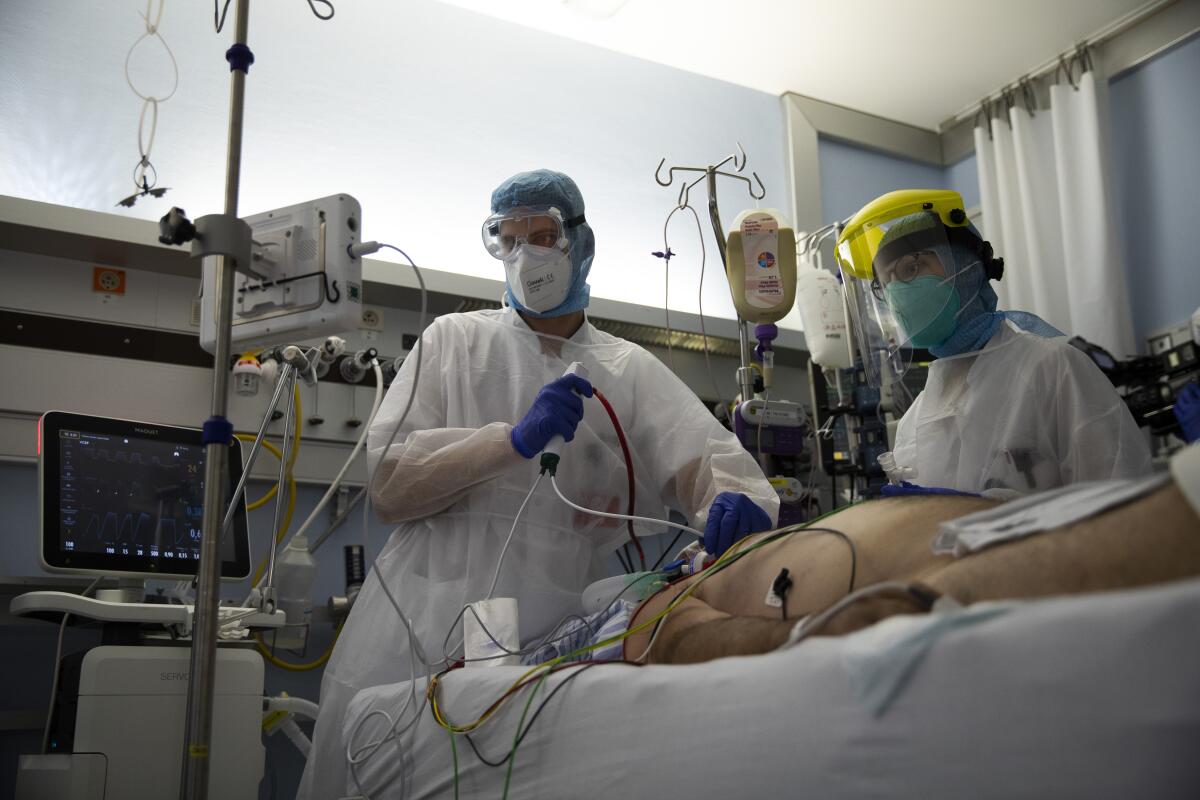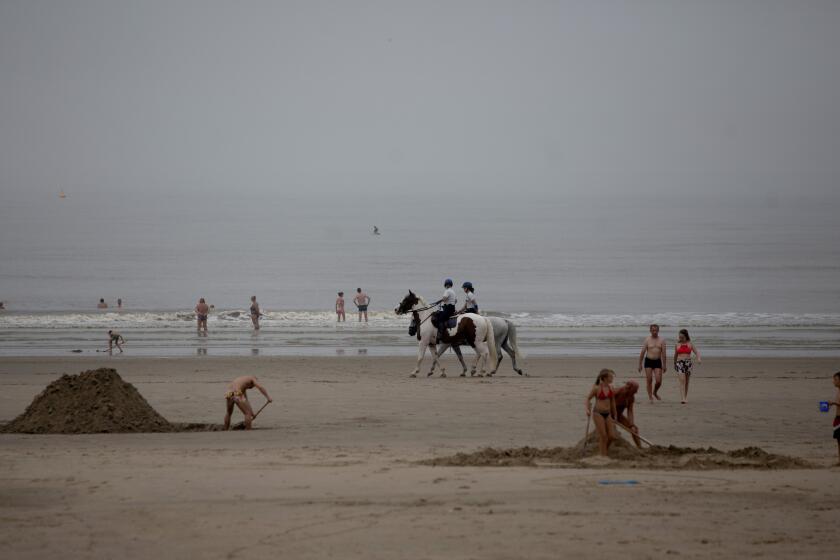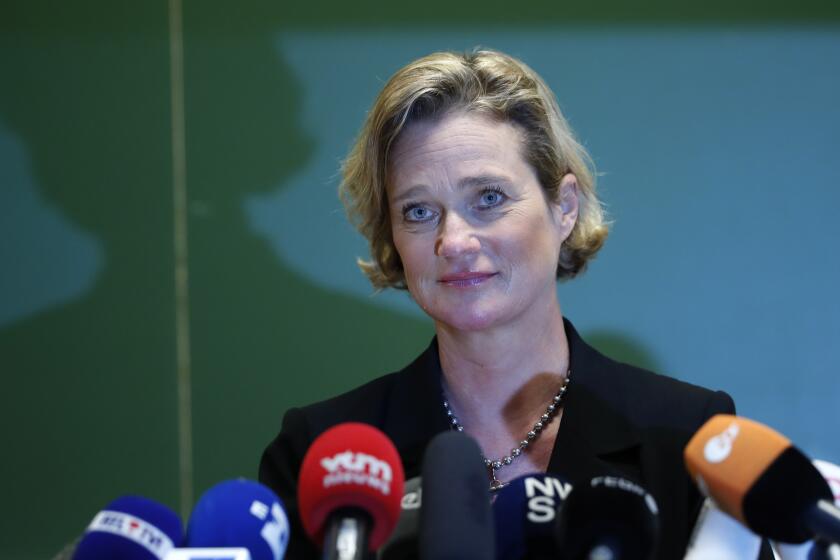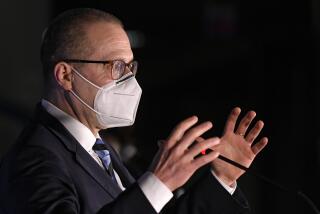Belgium is small, divided and now Europe’s biggest coronavirus hot spot

BUIZINGEN, Belgium — Small and divided politically, Belgium is presenting some of the most worrying statistics of the COVID-19 pandemic in Europe, which is reeling from a major resurgence of infections.
If ever there were a common enemy for Belgium’s rival Dutch- and French-speaking citizens and regions to fight, this would surely be it. But even now cooperation goes against the grain in Belgium, to the extent that the country’s Roman Catholic bishops felt compelled to issue a call for all to show some unity in the name of God.
“We can win the battle against the coronavirus only if we do it together,” the bishops said in a joint letter ahead of Sunday’s All Saints Day, highlighting the different rules imposed by the Belgium’s national and three regional governments.
This week, news came that the European Center for Disease Prevention and Control had recorded Belgium — shoehorned in between Germany, France and the Netherlands — as having the continent’s highest 14-day cumulative number of COVID-19 cases per 100,000 citizens, just ahead of the Czech Republic.
With 1,390.9 cases per 100,000 people, Belgium far outstrips even coronavirus hotbeds such as France and Spain. More than 11,000 people in Belgium have died of COVID-19 so far.
All this in a wealthy nation of 11.5 million people where no fewer than nine government ministers — national and regional — have a say on health issues.
The coronavirus and a heat wave are weighing heavily on Belgium, where people are living under a new series of health restrictions.
“A great many politicians can claim power but, in the end, no one is ever responsible,” said Luckas Vander Taelen, a historian and former member of the European Parliament. He called Belgium’s system of multiple layers of government serving the 6.5 million Dutch speakers in the north and the 5 million Francophones in the south “institutional lasagna.”
Belgium is one of the most densely populated countries in Europe, a crossroad of international trade, and its capital, Brussels, hosts the headquarters of the 27-nation European Union and of NATO. But Belgium’s political makeup, with its multiple regional authorities, also creates a kaleidoscope of different government health measures.
Throughout the pandemic, the Belgian population has been unified in one thing: a sense of confusion and bewilderment about the ever-changing rules imposed by the different layers of government.
Late Tuesday, the regional government of Flanders finally considered adapting its nighttime coronavirus curfew to match that of the Francophone region and Brussels, but then thought better of it. While it stays at midnight in the north of the country, it is 10 p.m. in other areas, complicating life for everyone who travels from one region to the other, as so many commuters do.
Former Belgian King Albert II meets with artist Delphine Boel, now recognized as Princess Delphine after a bitter two-decade paternity fight.
Even during a raging public health crisis, regional strife has raised its head. Christoph D’Haese, the mayor of Aalst in Flanders, recently said he would no longer accept patients from Brussels, Belgium’s largely Francophone capital.
“Medical solidarity has limits and borders,” he said. Hospital authorities disagreed and insisted that the essence of medical solidarity was the lack of borders.
When the Brussels UZ hospital, which has Flemish roots, warned that the capital needed to take tougher action to contain the crisis, the Francophone Brussels Health Minister Alain Maron sniped back that “when a Flemish hospital in Brussels raises a problem, it is a major issue, and when six of 14 hospitals in [Flemish] Antwerp are in the same situation, nobody talks about it.”
Vander Taelen has seen it all before. “So fast, you get to the level of village politics, even when lives are at stake,” he said.
News Alerts
Get breaking news, investigations, analysis and more signature journalism from the Los Angeles Times in your inbox.
You may occasionally receive promotional content from the Los Angeles Times.
Compounding the crisis was Belgium’s lack of a fully functioning national government for almost 500 days before Prime Minister Alexander De Croo cobbled together a seven-party coalition a month ago. One of the last measures his predecessor took in September was to relax coronavirus restrictions against the advice of medical experts. That relaxation is now partly blamed for the major surge this fall.
Charles Michel, a former Belgian prime minister who is now EU president, said the pandemic requires a continent-wide approach.
“This crisis has already demonstrated that no single country can tackle the situation on its own,” he said Tuesday. “Any management of this epidemic on a patchwork basis, whereby some would emerge better off than others, would serve only to exacerbate the economic imbalances.”
Absent a unified approach in Belgium, the Catholic bishops urged everyone to apply a rule of thumb: “Go for the safest measure, the safest figure. In the short term it is the toughest approach, in the long term the most secure.”
More to Read
Sign up for Essential California
The most important California stories and recommendations in your inbox every morning.
You may occasionally receive promotional content from the Los Angeles Times.












